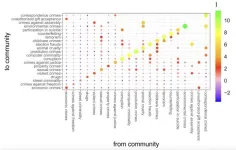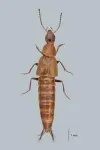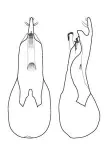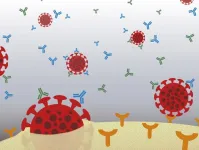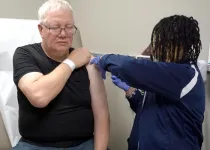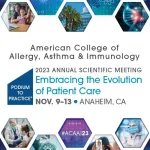(Press-News.org) Researchers at the Complexity Science Hub have examined 1.2 million criminal incidents and developed an innovative method to identify patterns in criminal trajectories.
When it comes to preventing future crimes, it is essential to understand how past criminal behavior relates to future offenses. One key question is whether criminals tend to specialize in specific types of crimes or exhibit a generalist approach by engaging in a variety of illegal activities.
Despite the potential significance of systematically identifying patterns in criminal careers, especially in preventing recurrent offenses, there is a scarcity of comprehensive empirical studies on this subject.
"To address this gap, we conducted an exhaustive examination of over 1.2 million criminal incidents," elaborates Stefan Thurner of the Complexity Science Hub. This comprehensive dataset encompassed all criminal reports filed against individuals over six years in a small Central European country.
SPECIALISTS WITH CERTAIN FEATURES
Criminal offenders who specialize in specific types of crimes typically are older and more frequently female than individuals involved in a broader range of offenses.
"These individuals, referred to as specialists, also tend to operate within a more confined geographic area, suggesting their dependence on local knowledge and potentially receiving support from individuals within that specific region, as opposed to offenders with a wider focus," Thurner explains one of the study's results. Furthermore, the researchers observed that these specialists tend to collaborate in tighter-knit local networks, increasing the likelihood of recurring partnerships.
DATA-DRIVEN CLUSTERING
In developing this method, researchers initially categorized all offenses into 21 categories, including corruption and sexual crimes, for example. "Subsequently, we clustered the criminal offenders based on the crimes they committed," explaines Georg Heiler from CSH.
To this anonymized dataset, the scientists added socio-demographic information such as age and gender, as well as details about the nature and severity of the committed offenses and the geographical region where they occurred. "The resulting clustering allows for data-driven categorization of crimes, revealing patterns of criminal behavior," Thurner says.
STRENGTHS OF THE METHOD
Regardless of the type and frequency of crimes, this new method's strength lies in the fact that each cluster may consist of varying numbers of crime types and offenses. The fact that some offenses (such as fraud or drug possession) occur more frequently than others (like counterfeiting or data misuse) does not influence the results.
The method also takes into account how often individuals commit specific types of offenses. Researchers found, among other things, that a transition between certain types of crimes occurs significantly more often than others. "This suggests that specialization in certain categories is more likely than in others," Thurner notes. These include, for example, environmental crimes, terrorism, or prostitution crimes.
PREVENTING REPEAT OFFENSES
According to a report by Statistics Austria, the reconviction rate in 2022 was 30%. Of the 581,000 individuals involved in this study, nearly a quarter committed more than one offense. If these repeat offenders specialize in specific crimes like burglaries, drug-related offenses, or hacking, this knowledge could assist law enforcement agencies in better anticipating criminal developments. Tailored measures in the areas of policing, prevention, and rehabilitation could have an even greater impact.
The close collaboration between law enforcement agencies and science has already demonstrated in previous projects how the development of new tools based on scientific methods can support police work in terms of resource allocation, planning, and execution of actions, as well as the efficiency, relevance, and quality of results. This is, of course, done while adhering to all legal standards, especially national and international data protection standards.
"While this dataset has the usual limitation of not containing information about undetected or unsolved crimes, we hope that with this method, we can support the work of law enforcement agencies from a scientific standpoint," Thurner concludes.
_______________
ABOUT THE COMPLEXITY SCIENCE HUB
The mission of the Complexity Science Hub (CSH) is to host, educate, and inspire complex systems scientists dedicated to making sense of Big Data to boost science and society. Scientists at the Complexity Science Hub develop methods for the scientific, quantitative, and predictive understanding of complex systems.
The CSH is a joint initiative of AIT Austrian Institute of Technology, Central European University CEU, Danube University Krems, Graz University of Technology, Medical University of Vienna, TU Wien, VetMedUni Vienna, Vienna University of Economics and Business, and Austrian Economic Chambers (WKO). https://www.csh.ac.at
END
Green sea turtles, Chelonia mydas, are listed as endangered on the IUCN Red List of Threatened Species. They are at risk of extinction due to poaching, collisions with boats, habitat destruction, and accidental capture in fishing gear. But another threat, linked to climate change, is more insidious: sea turtles have temperature-dependent sex determination, which means that more and more embryos develop into females as temperatures keep rising. Already, in the northern part of the Great Barrier Reef off Australia, hundreds of females are born for ...
Efforts to contain the Covid-19 pandemic have largely focused on vaccine development and deployment. But how exactly do our immune systems respond to COVID-19 vaccines? The major response occurs in one of two ways: the production of antibodies that bind to the receptor-binding domain (RBD) or the production of antibodies that bind to the N-terminal domain (NTD) of the coronavirus viral spike protein. Both play important roles in preventing infection, pathogenesis, and severe disease. However, the antibody repertoire varies widely among individuals. While it has been suggested that this diversity in antibodies influences the ability to ...
COLUMBUS, Ohio – Despite the Centers for Disease Control and Prevention warning this year will be potentially dangerous for respiratory illnesses, a third of Americans are not concerned about the threat, according to a new national survey by The Ohio State University Wexner Medical Center.
The survey found that while the majority of those polled (87%) said they do everything they can to avoid spreading seasonal viruses, one-third think their vaccine decision doesn’t affect others and that they don’t need ...
For the first time, scientists have used the concept of evolutionary traps on human societies at large. They find that humankind risks getting stuck in 14 evolutionary dead ends, ranging from global climate tipping points to misaligned artificial intelligence, chemical pollution, and accelerating infectious diseases.
The evolution of humankind has been an extraordinary success story. But the Anthropocene — the proposed geological epoch shaped by us humans — is showing more and more cracks. Multiple global crises, such as the Covid-19 pandemic, climate change, food insecurity, financial crises, and conflicts have started to occur simultaneously ...
About The Study: In this phase 1 study of 48 participants with elevated lipoprotein(a) levels, lepodisiran was well tolerated and produced dose-dependent, long-duration reductions in serum lipoprotein(a) concentrations. The findings support further study of lepodisiran, which is a short interfering RNA directed at hepatic synthesis of apolipoprotein(a), an essential component necessary for assembly of lipoprotein(a) particles.
Authors: Steven E. Nissen, M.D., of the Cleveland Clinic Center for Clinical Research in Cleveland, is the ...
Cleveland: Findings from a phase 1 trial reported by a Cleveland Clinic physician show that a single dose of an experimental therapy produced greater than 94% reductions in blood levels of lipoprotein(a), a key driver of heart disease risk, with the results lasting for nearly a year.
Results from the “Efficacy and Safety of Lepodisiran: An Extended Duration Short-Interfering RNA Targeting Lipoprotein(a) Study” were presented today during a late-breaking science session at the American Heart ...
ANAHEIM, Calif. (November 12, 2023) – Allergist Gailen Marshall, MD, PhD, of Jackson, MS, was installed as president of the American College of Allergy, Asthma and Immunology (ACAAI) at the ACAAI Annual Scientific Meeting on November 12 in Anaheim, Calif. Allergist James Tracy, DO, of Omaha, NE, was elected ACAAI president-elect.
Other newly elected ACAAI officers are Cherie Zachary, MD, Eagan, MN as vice president and Kelly Maples, MD, Norfolk, VA as treasurer. Regents elected for three-year terms include Aikaterini Anagnostou, MD, MSc, PhD, Houston, Texas, Brian T. Kelly, MD, MA, Omaha, Nebraska and Mervat Nassef, MD, New York, New ...
About The Study: Among patients with heart failure with mildly reduced ejection fraction or heart failure with preserved ejection fraction treated with dapagliflozin in this randomized clinical trial, an initial estimated glomerular filtration rate (eGFR) decline was frequent but not associated with subsequent risk of cardiovascular or kidney events. These data reinforce clinical guidance that sodium-glucose cotransporter-2 inhibitors should not be interrupted or discontinued in response to an initial eGFR decline.
Authors: Finnian R. Mc Causland, ...
AIP and the National Society of Black Physicists congratulate Charles D. Brown II as the winner of the 2023 Joseph A. Johnson Award for Excellence. Dante O’Hara and Danielle Speller are also being recognized with Honorable Mentions.
The Johnson Award, now in its fourth year, is given by AIP and NSBP to recognize early-career scientists who demonstrate scientific ingenuity and impactful mentorship and service – the core values of NSBP founder Joseph A. Johnson.
“We are excited to recognize Dr. Brown’s impact on the physics community,” said Michael Moloney, CEO of AIP. ...
San Diego, CA, November 12, 2023 - A new study by Hospital for Special Surgery (HSS) investigators has found that an initial high-risk antibody profile for antiphospholipid syndrome (APS) tended to remain high in pediatric patients. The results were presented today in a poster session at American College of Rheumatology (ACR) Convergence 2023, the ACR’s annual meeting.1
“There are a lot of unanswered questions about how APS affects pediatric patients since evidence to date has been very limited,” said Jheel Pandya, MD, a pediatric rheumatology fellow at HSS and lead author of the research. “Our study reveals that an initial high-risk ...
